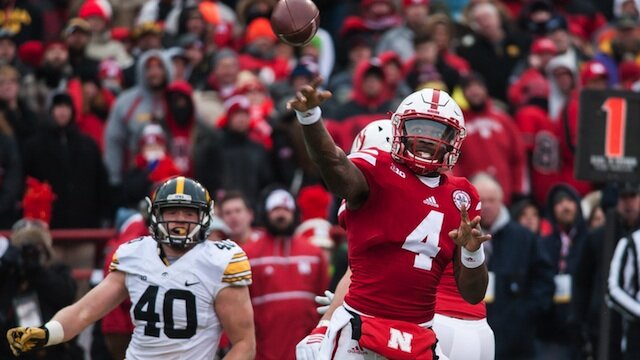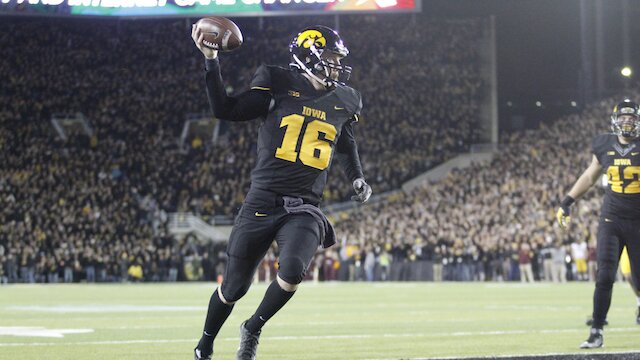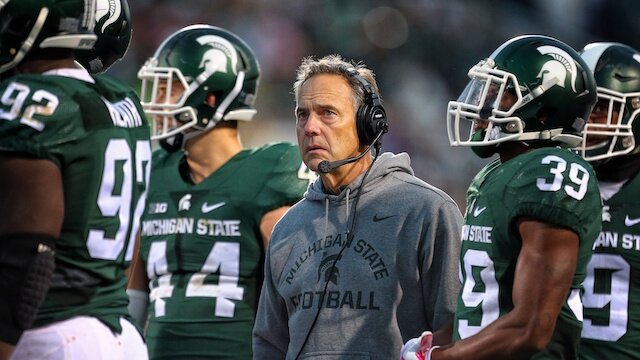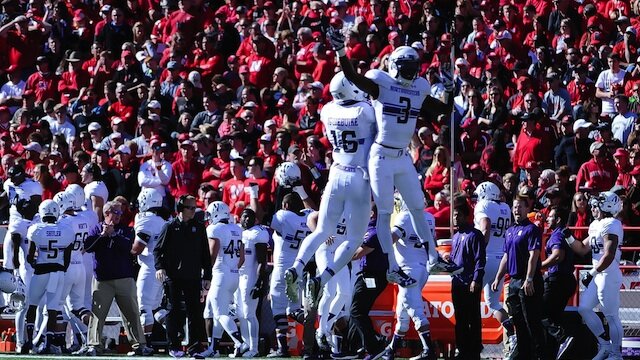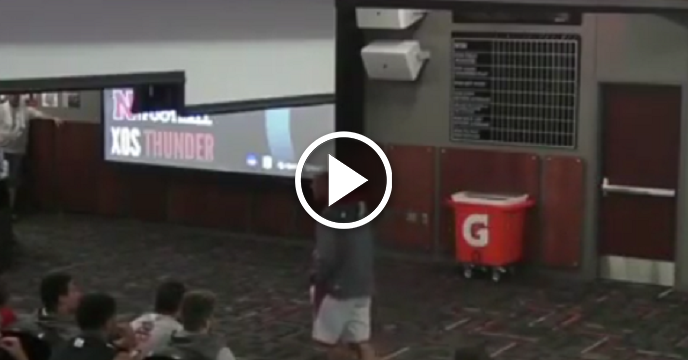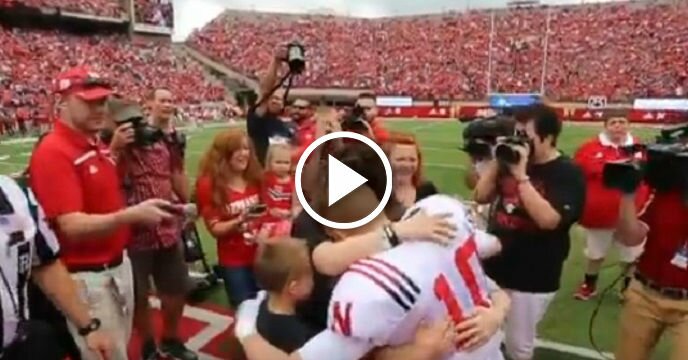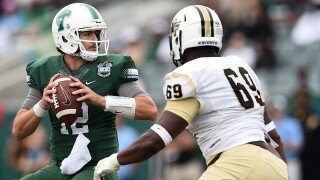
The Nebraska Cornhuskers made headlines following their regular season finale last weekend by announcing that they were parting ways with head coach Bo Pelini after seven seasons.
The reaction from fans and players was swift with much of the sentiment asking how a coach with Pelini’s track record of sustained success could be dropped. While the Huskers were good under Pelini’s watch, the expectation at Nebraska is for the team to be great. At the end of the day, the possibly unrealistic goals of the university cost Pelini his post.
Despite the unceremonious end to his time in Lincoln, the argument could be made for Pelini as one of the best coaches in the history of the program. In his first turn as a head coach, the defensive-minded Pelini won at least nine games every season since 2008 and finishes his run at Nebraska with a mark of 67-27. The 37-34 overtime win over the Iowa Hawkeyes in what turned out to be his final game at the helm pushed Pelini past Nebraska-legend Tom Osborne for the most wins ever at the school in a coach’s first seven years.
In fact, no coach in the history of a Power Five program has been let go for on-field performance after winning as much as Pelini has. Since 2008, Nebraska is one of only three programs in the country, including the Alabama Crimson Tide and Oregon Ducks, to win at least nine games every year. Nebraska’s streak of seven-straight nine-win seasons is the second-longest active streak in college football, behind only Oregon. On the surface, Pelini looks to be a paragon of successful program building.
But when you look a little deeper at Pelini’s tenure, you start to see why he just didn’t cut it as the leader of the Nebraska football program. During his time as head coach, the Cornhuskers have struggled in “the games that mattered,” as athletic director Shawn Eichorst put it when discussing the need for change at head coach. Nebraska had an 8-17 record under Pelini against AP-ranked opponents, including a woeful 3-9 record on the road. Pelini failed to take Nebraska to a single BCS Bowl game during his reign, and managed a mediocre 3-3 record in the bowl games he did qualify for.
In Pelini’s seven years at the helm, Nebraska also never brought home a conference title. He was 0-3 in conference title games, losing both attempts at the Big 12 title in 2009 and 2010 before making the move to the Big Ten where they were embarrassed by the Wisconsin Badgers in 2012 with a 70-31 shellacking that might have been worse than not making the title game in the first place. Pelini’s tenure ultimately will be remembered for late-season swoons as the Huskers lost at least three games every year under him and finished just 3-4 in their last seven November games.
The biggest strike against Pelini, though, wasn’t necessarily the games that he lost, but the manner in which he lost them. As a former defensive coordinator for the LSU Tigers and Oklahoma Sooners, Pelini was hired to bring a physical, defensive-minded football philosophy to Lincoln and restore the once-proud tradition of the “Blackshirts.”
But since Pelini’s first season in 2008, Nebraska has lost 10 games by 20 points or more. Since joining the Big Ten in 2011, they’ve given up 45 points or more on six different occasions. In the latest embarrassing loss for the Huskers, the Nebraska defense allowed a then-FBS record 408 rushing yards to Melvin Gordon as Wisconsin rolled to a 59-24 win, effectively ending the Huskers’ hopes for a conference championship in 2014 and possibly sealing Pelini’s fate in the process.
And that’s simply not good enough for one of college football’s traditional powers. Let us not forget that Nebraska is one of the proudest programs in history, currently ranking No. 4 in all-time victories of any FBS team, with the most wins and highest winning percentage of any program over the last 50 years. They have had some of the best teams in history represent this university, with five national championships on their mantle.
Nebraska claims 46 conference championships as well and have had three Heisman Trophy winners with 54 Consensus All-Americans in their history and boasts 22 members of the College Football Hall of Fame. This is a program that oozes tradition and Pelini was supposed to be the man to take them back to their glory days.
While nine wins a season is a dramatic improvement over the Bill Callahan era that preceded him, Pelini simply couldn’t get Nebraska to take that next step into the national title conversation. Perhaps it was an unfair bar to set for Pelini, as many of the “traditional” powers of college football have struggled to keep up with the changing landscape of the game, but it was what the university expected from its football program. Nine wins a year is very good, without a doubt, but Nebraska demanded that Pelini take this team to greatness and he simply wasn’t able to do that.
In the aftermath of their decision to cut Pelini loose, Nebraska now must face the difficult and daunting challenge of finding a coach who can take this program back to the top. For every Nick Saban or Urban Meyer out there waiting to be discovered, there are a dozen coaches ill-prepared to handle the job that could be a repeat of the Callahan calamity that preceded Pelini.
For those that don’t remember, Callahan led Nebraska to the worst four-year stretch for any Huskers coach in the last 50 years. His NFL-style offense failed to take hold in Lincoln and in 2004 led the Huskers to their first losing season (5-6) since 1961. In his final year at the helm in 2007, he watched Nebraska go on a five-game losing streak for the first time since 1958. While the university and fan base are surely exhausted with finishing 9-4, they’ll remember it fondly if their next coach struggles to stay above .500.
At the end of the day, Pelini simply fell short of what Nebraska asked him to do, which was to return a traditional powerhouse to the national title conversation. Whether or not this program is still equipped to run with the new powers of college football is another debate entirely. Nebraska believes they have everything to return to their former glory and Pelini simply wasn’t putting the pieces together.
Will the next Husker head coach fare any better?
You can follow Tyler Brett on Twitter @ATylerBrett, on Facebook and on Google.
 Share
Share 

